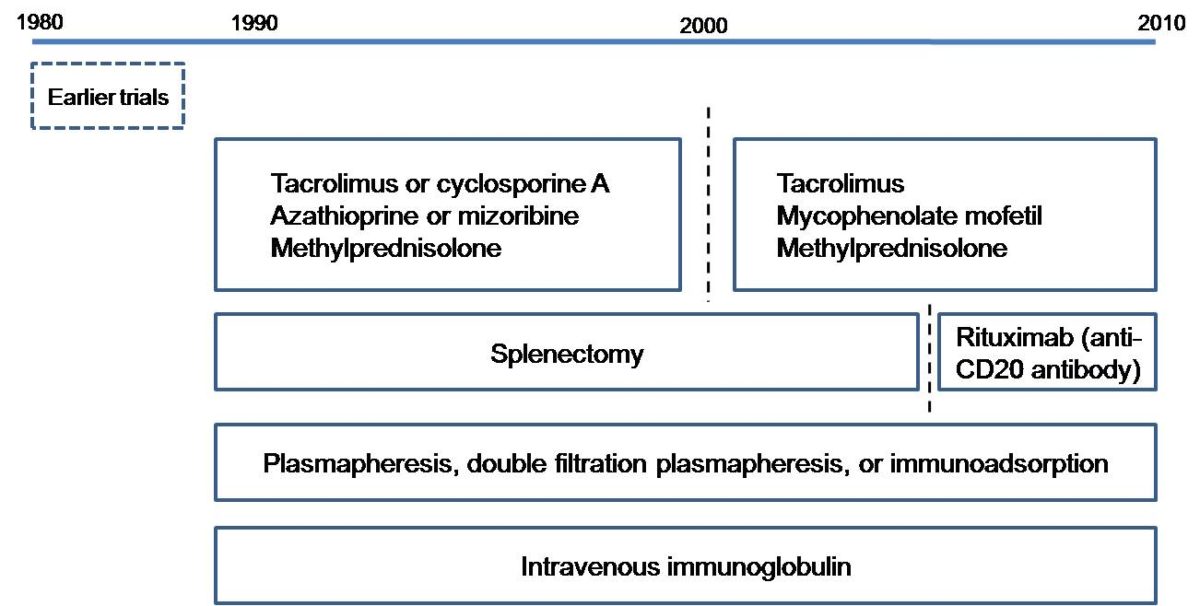Blog
November 5, 2019
What is Nephrotic syndrome?
Nephrotic syndrome is characterized by edema, proteinuria, hypoalbuminemia, and hyperlipidemia. Minimal change disease, the most common cause in childhood, generally responds to corticosteroids, although most patients experience disease relapses. Focal segmental glomerulosclerosis is usually resistant to corticosteroids and carries a significant risk of kidney failure, necessitating renal transplantation. Nephrotic syndrome may also be secondary to
November 5, 2019
Congenital Nephrotic Syndrome in India in the Current Era: A Multicenter Case Series
There is a paucity of information on epidemiology, diagnosis, and treatment outcomes of congenital nephrotic syndrome (CNS) in developing countries. This largest reported series on CNS from India revealed suboptimal management with poor outcome as well as low number of CNS being subjected to genetic evaluation. Sources: https://www.ncbi.nlm.nih.gov/pubmed/31655822
May 16, 2019
A Glimpse On Chronic Kidney Disease
CKD (chronic kidney disease) is a lifelong condition in which the kidney function slowly declines over many years. It is common in adults but extremely rare in children. It can be caused by a number of conditions affecting the kidney and can present at birth or later on during childhood. All kidney conditions do not
March 6, 2019
Testing for and diagnosing nephrotic syndrome in children
Nephrotic syndrome explained: Nephrotic syndrome is a condition which affects the kidneys and the miniscule filtering system within it, called the nephrons. There is damage to these structures as a result of various reasons, and mostly in children the cause remains unknown, also known as idiopathic nephrotic syndrome. As a result of this damage, the
March 6, 2019
Nephrotic syndrome in childhood
Nephrotic syndrome is a disease of the kidneys which occurs in childhood. It is often called nephrosis or minimal change disease, and is a disease which is characterized by increased leakage of proteins from the body in the urine. This results in increased levels of protein present in the urine and low levels of protein
December 28, 2018
ABO Incompatible Kidney Transplant in Children
Recent literature has endorsed favorable outcomes following ABOi kidney transplantation in pediatric population. Nevertheless, reluctance to pursue an ABOi still remains pervasive. This could be ascribed to various legitimate reasons, namely less extensive pediatric ABOi data, technical difficulties encountered during PP, cost restraints, and concerns regarding higher rates of antibody-mediated rejection, infectious complications, and post-transplant
December 28, 2018
Disparities in dialysis in children
HYPOTHESIS: Acute kidney injury (AKI) is a common cause of morbidity and mortality worldwide, with a pediatric incidence ranging from 19.3% to 24.1%. Treatment of pediatric AKI is a source of debate in varying geographical regions. Currently CRRT is the treatment for pediatric AKI, but limitations due to cost and accessibility force use of adult
December 28, 2018
Fluid overload in critically ill children
In a critically ill patient, fluid balance is imperative in management and maintaining homeostasis. More often than not, patients are resuscitated with fluids to maintain adequate intravascular volume. A common issue seen in pediatric intensive care units is fluid imbalances and hemodynamic instability. Aggressive fluid administration can lead to fluid overload (FO), a condition in
August 29, 2018
Your child hospitalised? It can increase his risk of this deadly disease
Acute Kidney Injury (AKI) is a common cause of morbidity and mortality globally. According to a study published in the Lancet Journal on ‘incidence and outcomes of neonatal acute kidney injury’, in four countries – India, Canada, USA and Australia, almost one out of every three new-borns when hospitalised for any illness and administered intravenous
May 27, 2017
ABO incompatible pediatric renal transplants in UK
Transplantation journal published a recent study from UK, Pediatric ABO incompatible renal transplants. Study showed their 11 children, in comparison to compatible transplants. Our protocol seems to completely same as theirs, with similar outcomes! Image Source
May 26, 2017
Albuminuria or Proteinuria in children with CKD: Progression
The role of albuminuria as an indicator of progression has not been investigated in children with CKD in the absence of diabetes. An excellent study from Dr Schwartz group from Rochester, on children with CKD shows that the utility of an initial UP/C, ACR, and Unon-alb/cr for characterizing progression is similar.
February 11, 2017
Missed Hypertension in Adolescents & Risk of ESRD
Persistent hypertension in adulthood is a leading cause of end-stage renal disease (ESRD). Whether lower blood pressure (BP) values, in the range of prehypertension, are also associated with future occurrence of ESRD is unclear. A recent study published in Journal of Hypertension clearly shows that asymptomatic, healthy adolescents with prehypertension have a 32% increased risk








